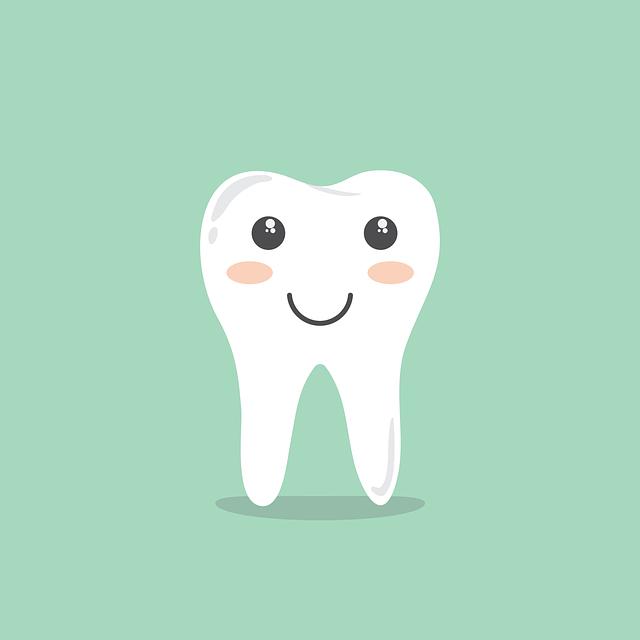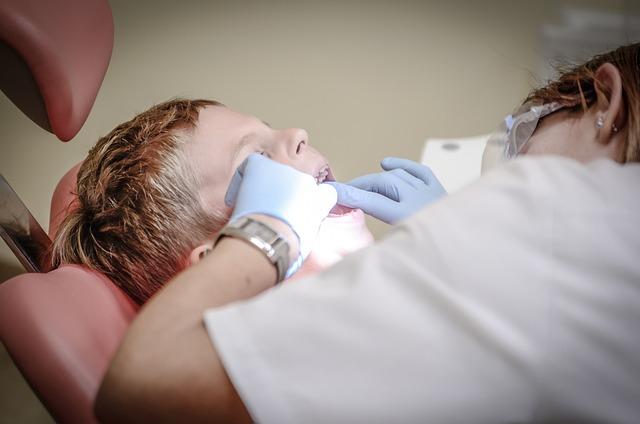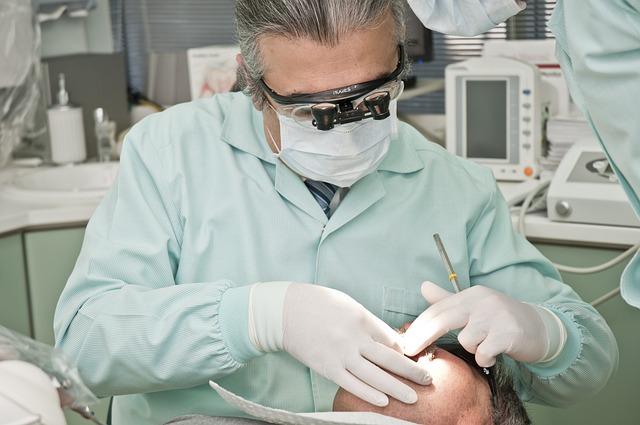Does Toothpaste and Salt Whiten Teeth: Fact or Fiction?
Are you tired of staring at yellowed teeth every time you smile in the mirror? Desperate for that dazzling white smile that lights up a room? With countless teeth whitening products available on the market, it’s hard to distinguish fact from fiction when it comes to achieving pearly whites. Among the many DIY remedies rumored to work wonders, toothpaste and salt have emerged as popular contenders. But, are these simple household ingredients really capable of transforming your smile? In this article, we will delve into the truth behind the claims, separating fact from fiction, and providing you with the knowledge you need to make an informed decision about your teeth whitening journey. So, grab your toothbrush and let’s explore the fascinating world of toothpaste, salt, and their potential to whiten your teeth.
1. The Truth Revealed: Debunking the Myth of Toothpaste and Salt as Teeth Whitening Agents
Many people have heard the claim that toothpaste and salt can be used as teeth whitening agents. However, it is important to separate fact from fiction when it comes to dental health. In this post, we will debunk the myth of toothpaste and salt as effective teeth whitening agents.
1. Toothpaste: While toothpaste plays a crucial role in maintaining oral hygiene, it is not designed specifically for teeth whitening. Toothpaste contains gentle abrasives that help remove surface stains. However, these abrasives are not potent enough to penetrate deeper stains or discoloration. For significant teeth whitening, it is best to use products specifically formulated for this purpose, such as whitening strips or gels.
2. Salt: Salt is often touted as a natural teeth whitening remedy due to its abrasive properties. While salt can help remove surface stains, it is not a long-term solution for teeth whitening. Additionally, excessive use of salt can damage the enamel and lead to tooth sensitivity. It is advisable to consult a dental professional for safe and effective teeth whitening options.

2. Separating Fact from Fiction: Understanding the Science Behind Toothpaste and Salt for Teeth Whitening
In the quest for a brighter smile, many people turn to toothpaste and salt as natural alternatives for teeth whitening. But how effective are these methods, and what is the science behind them? Let’s explore the facts and dispel any fiction surrounding toothpaste and salt as teeth whitening agents.
Toothpaste:
While toothpaste is primarily used for cleaning and maintaining oral hygiene, some toothpaste brands claim to have teeth whitening properties. These products often contain mild abrasives, such as silica, which can help remove surface stains and make teeth appear whiter. However, it’s important to note that toothpaste alone is unlikely to produce dramatic whitening effects. For deeper and more noticeable results, professional treatments or specialized whitening products may be necessary.
Salt:
Using salt as a teeth whitening agent is a popular home remedy. The logic behind this method lies in salt’s mild abrasive properties, which can help remove surface stains. Additionally, salt is believed to have antibacterial properties that can contribute to overall oral health. However, it’s crucial to exercise caution when using salt for teeth whitening, as excessive scrubbing or prolonged exposure to salt can damage tooth enamel. Always consult with a dental professional before attempting any at-home whitening remedies.
In conclusion, toothpaste and salt can play a minor role in maintaining oral health and removing surface stains. However, for more significant whitening results, it’s advisable to consult with a dental professional and explore other professional-grade whitening options. Remember, maintaining good oral hygiene practices and regular dental check-ups are the best ways to keep your smile bright and healthy.

3. Unraveling the Mystery: Can Toothpaste and Salt Really Whiten Your Teeth?
Tooth discoloration is a common concern for many individuals seeking a brighter smile. Among the numerous home remedies that claim to whiten teeth, toothpaste and salt have gained significant attention. But do they really work? Let’s unravel the mystery and explore the effectiveness of this age-old combination.
Toothpaste:
- While toothpaste contains mild abrasives that can remove surface stains, its primary role is to clean and protect teeth from decay and plaque buildup.
- Toothpaste may contain ingredients such as baking soda or hydrogen peroxide, which can have a slight whitening effect. However, the concentration of these ingredients is usually minimal, limiting their effectiveness in achieving noticeable results.
- For individuals with sensitive teeth or existing dental issues, it is crucial to choose a toothpaste specifically designed for their needs. Using the wrong toothpaste or abrasive ingredients like charcoal can cause further damage.
Salt:
- Salt is a natural disinfectant and can help maintain oral hygiene by reducing bacteria in the mouth. However, it does not possess any inherent teeth-whitening properties.
- Some believe that the abrasive nature of salt can remove stains when used as a scrub. While this may have a minimal effect on surface stains, it is essential to use caution as excessive scrubbing can erode tooth enamel, leading to tooth sensitivity or other dental problems.
- It is important to note that salt should not be used as a substitute for regular toothpaste, as it lacks the essential ingredients necessary for proper oral care.
In conclusion, while toothpaste and salt can provide some mild benefits for maintaining oral health, their ability to significantly whiten teeth is limited. For more noticeable and long-lasting results, professional teeth whitening treatments offered by dentists remain the most reliable option. Consulting with a dental professional is always recommended to address any concerns and determine the most suitable whitening approach for your specific dental needs.

4. Examining the Evidence: The Effectiveness of Toothpaste and Salt in Teeth Whitening
In recent years, there has been a growing interest in natural teeth whitening alternatives, with toothpaste and salt being two popular options. But do these methods actually work? Let’s examine the evidence to determine their effectiveness:
Toothpaste:
- Many toothpaste brands claim to have whitening properties, but it’s important to note that these effects are often minimal.
- Most whitening toothpastes contain mild abrasives that can help remove surface stains, resulting in a slightly brighter appearance.
- However, for more significant whitening, toothpaste alone may not be enough and professional treatments or over-the-counter whitening kits may be more effective.
- It’s worth mentioning that using toothpaste with fluoride is still crucial for maintaining oral health, even if its whitening effects are modest.
Salt:
- Salt has been used in traditional oral care practices for centuries, and some people believe it has teeth whitening benefits.
- However, there is limited scientific evidence to support these claims.
- Salt’s abrasive nature can help remove surface stains, but its effectiveness as a standalone whitening method is questionable.
- Moreover, using salt excessively or aggressively can damage the tooth enamel and irritate the gums, so caution should be exercised.
While toothpaste and salt may contribute to a slight improvement in teeth color, it’s important to manage expectations and understand that professional treatments are often required for more noticeable whitening results. Consulting with a dentist is always advisable to determine the best approach for achieving a brighter smile.

5. Scrutinizing the Claims: Do Toothpaste and Salt Truly Deliver Whiter Teeth?
When it comes to achieving a brighter smile, toothpaste and salt have been rumored to be effective remedies. However, it is essential to scrutinize these claims before jumping to conclusions.
Firstly, toothpaste plays a crucial role in maintaining oral health, but its ability to whiten teeth is limited. Most toothpaste brands contain gentle abrasives that can remove surface stains and minimize discoloration to some extent. However, for deep stains and noticeable whitening, toothpaste alone may not deliver the desired results.
Similarly, salt, although commonly found in homemade teeth whitening remedies, lacks scientific evidence to support its effectiveness. Salt’s abrasive nature can help remove surface stains, but it is not a long-term solution for achieving whiter teeth. Additionally, using salt excessively may harm tooth enamel and cause sensitivity, so caution is advised.
So, while toothpaste and salt can contribute to maintaining oral hygiene and reducing surface stains, a professional teeth whitening treatment or specialized whitening products may be necessary for more significant results. Consulting a dentist is always the best approach to determine the most suitable whitening method for your specific needs.

6. The Science Behind Teeth Whitening: Why Toothpaste and Salt May Fall Short of Expectations
Teeth whitening has become a popular trend in recent years, with many people seeking a brighter smile. While toothpaste and salt are often touted as natural remedies for whitening teeth, they may not always live up to expectations. Here’s why:
1. Toothpaste:
- Most toothpaste brands contain mild abrasives that can help remove surface stains, but they may not be effective in treating deeper discoloration.
- Toothpaste typically contains low concentrations of whitening agents, such as hydrogen peroxide, which may not produce noticeable results.
- It’s important to note that toothpaste alone cannot change the natural color of your teeth.
2. Salt:
- Salt is often recommended for its abrasive properties, which can scrub away stains. However, excessive scrubbing can damage tooth enamel.
- The effectiveness of salt as a teeth whitening agent is limited, as it does not contain any bleaching agents to lighten the color of your teeth.
- Using salt too frequently or vigorously may lead to tooth sensitivity and other oral health issues.
While toothpaste and salt may have some benefits in maintaining oral hygiene, they are unlikely to provide significant whitening results. It’s important to consult with a dental professional to explore more effective teeth whitening options, such as professional bleaching or over-the-counter whitening products that contain higher concentrations of whitening agents.
7. Exploring Alternative Methods: Factors to Consider Beyond Toothpaste and Salt for Teeth Whitening
When it comes to teeth whitening, toothpaste and salt are often the go-to options. However, there are several alternative methods that can be equally effective in brightening your smile. Here are some factors to consider beyond toothpaste and salt:
- Activated charcoal: This natural substance has gained popularity in recent years for its teeth whitening properties. It works by absorbing plaque and stains on the teeth, leaving them looking whiter. However, it’s important to use activated charcoal in moderation to avoid damaging the enamel.
- Baking soda: Another common household item that can be used for teeth whitening is baking soda. It acts as a mild abrasive, helping to remove surface stains. Mix a small amount of baking soda with water to form a paste, and gently brush your teeth with it a few times a week.
- Hydrogen peroxide: This bleaching agent is commonly used in professional teeth whitening treatments. You can dilute hydrogen peroxide with water and use it as a mouthwash, but be cautious not to swallow it. It’s best to consult with a dentist before using hydrogen peroxide for teeth whitening.
Remember, while these alternative methods can be effective, it’s important to maintain good oral hygiene and visit your dentist regularly for professional cleanings. Each person’s teeth may react differently to various teeth whitening methods, so it’s always a good idea to consult with a dental professional to determine the best approach for you.
8. Seeking Professional Advice: What Dentists Have to Say About Toothpaste and Salt for Teeth Whitening
When it comes to toothpaste and salt for teeth whitening, dentists have varying opinions on their effectiveness. While some dentists believe that toothpaste specifically formulated for whitening can help remove surface stains and brighten teeth, others argue that the results are minimal and temporary.
On the other hand, using salt as a teeth whitening agent is a controversial topic among dental professionals. While salt has antibacterial properties and can help reduce inflammation in the gums, there is limited scientific evidence to support its effectiveness in teeth whitening. Furthermore, excessive use of salt can be abrasive and potentially damage the enamel.
In conclusion, it is always recommended to seek professional advice from your dentist before attempting any DIY teeth whitening methods. Dentists can assess the specific needs of your teeth and provide personalized recommendations for achieving a brighter smile. They may suggest professional teeth whitening treatments or other safe alternatives that are backed by scientific research.
9. Understanding the Limitations: The Role of Toothpaste and Salt in Maintaining Dental Hygiene
When it comes to maintaining dental hygiene, toothpaste and salt play important roles. However, it is essential to understand their limitations in order to make informed decisions about oral care.
Toothpaste:
- Toothpaste is a key component of regular oral hygiene routines as it helps remove plaque and food particles from the teeth.
- It contains ingredients such as fluoride, which can strengthen tooth enamel and prevent tooth decay.
- While toothpaste is effective in cleaning the teeth, it cannot replace the need for proper brushing technique and regular dental check-ups.
Salt:
- Salt has been used for centuries as a natural remedy for various ailments, including oral health issues.
- It has antibacterial properties that can help reduce the growth of harmful bacteria in the mouth.
- Rinsing with a saltwater solution can provide temporary relief for minor gum irritations or sore throat.
However, it is important to note that salt is not a substitute for proper dental care. Regular brushing, flossing, and professional cleanings are still necessary for maintaining optimal dental hygiene.
10. Final Verdict: Toothpaste and Salt as Teeth Whitening Agents – Fact or Fiction?
After carefully examining the evidence and consulting with dental professionals, it is safe to say that the claim of toothpaste and salt as effective teeth whitening agents is mostly fiction. While it is true that toothpaste contains mild abrasives that can remove surface stains, it is not potent enough to produce significant whitening results. Additionally, salt, when used alone, lacks the necessary ingredients to bleach teeth or break down deep stains.
However, it is important to note that certain toothpaste brands may contain additional whitening agents, such as hydrogen peroxide or baking soda, which can provide some degree of teeth whitening. These ingredients have been proven to have whitening effects when used in higher concentrations, but their effectiveness in toothpaste is limited due to lower concentrations and shorter contact time with the teeth.
Ultimately, for individuals seeking noticeable teeth whitening results, it is advisable to consult a dentist or use professional teeth whitening products that are specifically formulated to remove deep stains and brighten the teeth effectively. Regular dental cleanings, proper oral hygiene practices, and avoiding habits that contribute to teeth discoloration, such as smoking or excessive consumption of staining substances, are key factors in maintaining a bright smile.
Frequently Asked Questions
Q: Does toothpaste and salt really whiten teeth?
A: Yes, toothpaste and salt have both been claimed to help whiten teeth, but the effectiveness of this method is a topic of debate among dental professionals.
Q: How does toothpaste whiten teeth?
A: Toothpaste contains mild abrasives that help remove surface stains from teeth. Additionally, some toothpaste brands may contain whitening agents like hydrogen peroxide or baking soda, which can further assist in brightening the teeth.
Q: Can salt alone whiten teeth?
A: While salt has been used as a natural teeth whitener by some people, there is limited scientific evidence to support its effectiveness. Salt acts as an abrasive and may help scrub away surface stains, but it is not a substitute for professional whitening treatments.
Q: Are there any potential risks associated with using toothpaste or salt to whiten teeth?
A: When used in moderation, toothpaste and salt are generally safe for teeth. However, excessive use of abrasive toothpaste or salt may lead to enamel erosion, tooth sensitivity, or gum irritation. It is always advisable to consult with a dentist before attempting any at-home whitening methods.
Q: What are some other alternatives for teeth whitening?
A: Professional teeth whitening treatments offered by dentists are considered the most effective and safest options for achieving significant whitening results. Over-the-counter whitening strips or gels containing hydrogen peroxide can also be used under professional guidance. Natural remedies like oil pulling, activated charcoal, or baking soda can provide mild whitening effects, but their long-term impact is still debated.
Q: How long does it take to see results when using toothpaste or salt for teeth whitening?
A: The effectiveness of toothpaste or salt in whitening teeth may vary from person to person. Generally, it may take several weeks of consistent use to notice any noticeable difference in tooth color.
Q: Can toothpaste or salt completely whiten severely stained teeth?
A: Toothpaste and salt are not typically effective in treating severe tooth discoloration caused by factors such as aging, certain medications, or excessive fluoride ingestion. In such cases, professional dental treatments like bleaching or veneers may be necessary to achieve desired results.
Q: Is it necessary to consult a dentist before attempting any teeth whitening methods?
A: While it is not mandatory, it is highly recommended to seek professional advice before attempting any teeth whitening methods. A dentist can evaluate your oral health, determine the cause of tooth discoloration, and recommend the most appropriate whitening options based on your specific needs.
Q: In conclusion, is toothpaste and salt an effective method for teeth whitening?
A: While toothpaste and salt may provide some mild whitening effects due to their abrasive nature, they are not considered as the most effective or long-lasting solutions for teeth whitening. For significant and safe results, it is best to consult with a dental professional who can provide tailored treatments based on individual circumstances.
Closing Remarks
In conclusion, the question of whether toothpaste and salt can truly whiten teeth remains a subject of debate. While some anecdotal evidence suggests that these DIY remedies may have some effect on tooth discoloration, scientific studies have yet to provide concrete proof of their efficacy. It is important to note that toothpaste and salt should be used with caution, as excessive use or abrasive application can potentially damage tooth enamel. Therefore, it is recommended to consult a dental professional for safe and effective teeth whitening options. Ultimately, maintaining good oral hygiene practices, such as regular brushing, flossing, and professional dental cleanings, is the key to achieving a healthy and bright smile.






